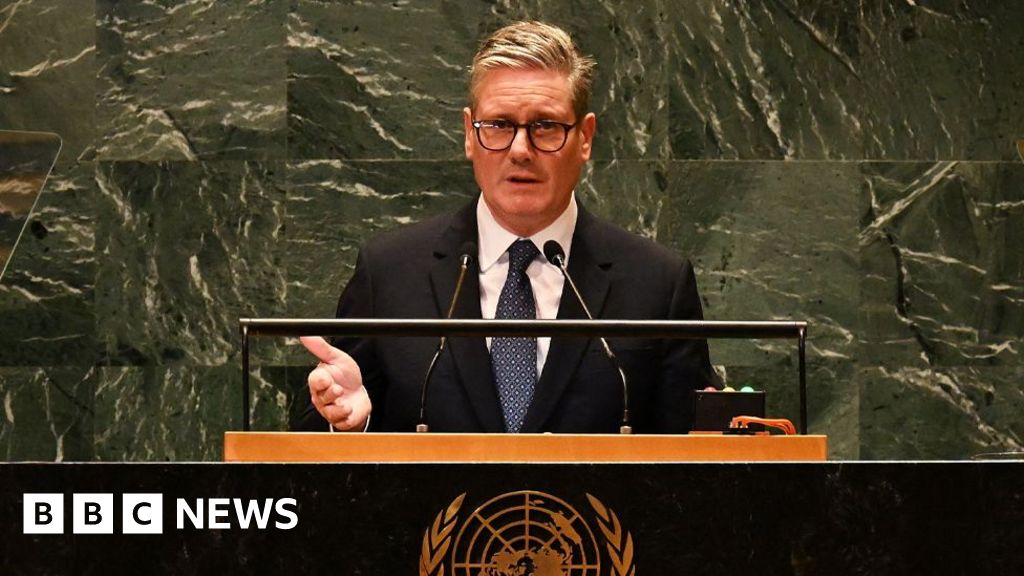Sir Keir Starmer has stepped up his call for an immediate ceasefire in Lebanon following an escalation in fighting between Israel and the armed group Hezbollah.
“Stop the violence. Step back from the brink,” the prime minister said in his maiden speech to the UN General Assembly, despite Israeli ministers’ rejection of an international proposal for a temporary pause in fighting.
Sir Keir told world leaders a ceasefire would provide space for a diplomatic settlement to avoid a regional conflict in the Middle East.
Fears of an all-out war between Israel and Hezbollah are at a high, following the deadliest escalation of cross-border attacks in decades.
More than 600 people have been killed by Israeli airstrikes in Lebanon since Monday, including at least 92 people on Thursday, according to local authorities.
Hezbollah has responded by firing hundreds of rockets into northern Israel.
Israeli politicians have broadly rejected the idea of a ceasefire after a 12-strong bloc – including the UK, US and other allies proposed a three-week pause in fighting.
Israeli Prime Minister Benjamin Netanyahu told the country’s military to continue fighting with “full force” as he landed in New York on Thursday.
Addressing the UN General Assembly there, Sir Keir said an immediate ceasefire was needed “to provide space for a diplomatic settlement”.
He warned that the conflict could spill over into a war “no-one can control and with consequences that none of us can foresee”.
Elsewhere in his speech, Sir Keir vowed to return the UK to “responsible global leadership” by recommitting to “the UN, to internationalism, to the rule of law”.
He also promised to restore Britain’s “commitment to international development”, and set out plans to change the international financial system “to deliver a fairer deal for developing countries”.
Around 70,000 Israelis have been displaced from the north of the country since hostilities between Israel and Hezbollah began, sparked by the war in Gaza.
In Lebanon, around 90,000 people have been displaced since Monday, in addition to the 110,000 who had fled their homes already, according to the UN.
The UK has urged British nationals in Lebanon to leave immediately because of the escalation, however some have told the BBC of their difficulty in fleeing the country.
Cross-border fighting continued on Thursday, with the Israeli army saying it had struck Hezbollah targets in parts of Lebanon’s south and east, and on the Lebanese-Syrian border.
Meanwhile, Hezbollah said it had fired 50 rockets towards the Kiryat Ata settlement, and 80 missiles towards the city of Safed, both in northern Israel.
Israel’s military chief told troops on Wednesday that strikes targeting Hezbollah could pave the way for them to “enter enemy territory”.
The remarks by Lt Gen Herzi Halevi were the plainest indication yet from a senior figure that a ground invasion into Lebanon may be imminent.

